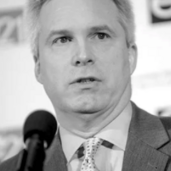Charles Blahous is a Hoover visiting fellow specializing in domestic economic policy. His areas of expertise include retirement security, with an emphasis on Social Security and employer-provided defined benefit pensions, as well as federal fiscal policy, entitlements, demographic change, economic stimulus, financial market regulation, and health care reform.
From 2010 to 2015, Blahous served as one of the two public trustees for the Social Security and Medicare Programs. From 2007 to 2009, he served as deputy director of President Bush's National Economic Council. From 2001 to 2007, Blahous served as a special assistant to the president for economic policy, first covering retirement security issues and later encompassing energy policy. In 2001, he served as the executive director of the bipartisan President's Commission to Strengthen Social Security.
From 2000 to 2001, Blahous led the Alliance for Worker Retirement Security, a private-sector coalition dedicated to the fiscally responsible reform of Social Security. From 1996 to 2000, he served as policy director for US senator Judd Gregg (R-NH). From 1989 to 1996, he served in the office of Senator Alan Simpson (R-WY), first as a Congressional Science Fellow sponsored by the American Physical Society and, from 1994 to 1996, as the senator's legislative director.
Blahous’s latest publications include Social Security: The Unfinished Work (Hoover Press, 2010) and Pension Wise: Confronting Employer Pension Underfunding—and Sparing Taxpayers the Next Bailout (Hoover Press, 2010). He is also the author of Reforming Social Security. He has published in a number of periodicals including National Affairs, Financial Times, Politico, National Review, Harvard Journal of Legislation, Baseball Research Journal, and the Journal of Chemical Physics. He was named to SmartMoney's "Power 30" list in 2005. His public appearances include various radio and television programs including "Ask the White House," and speeches on university and college campuses.
Blahous has a PhD in computational quantum chemistry from the University of California at Berkeley and an AB from Princeton University, where he won the McKay Prize in Physical Chemistry.


